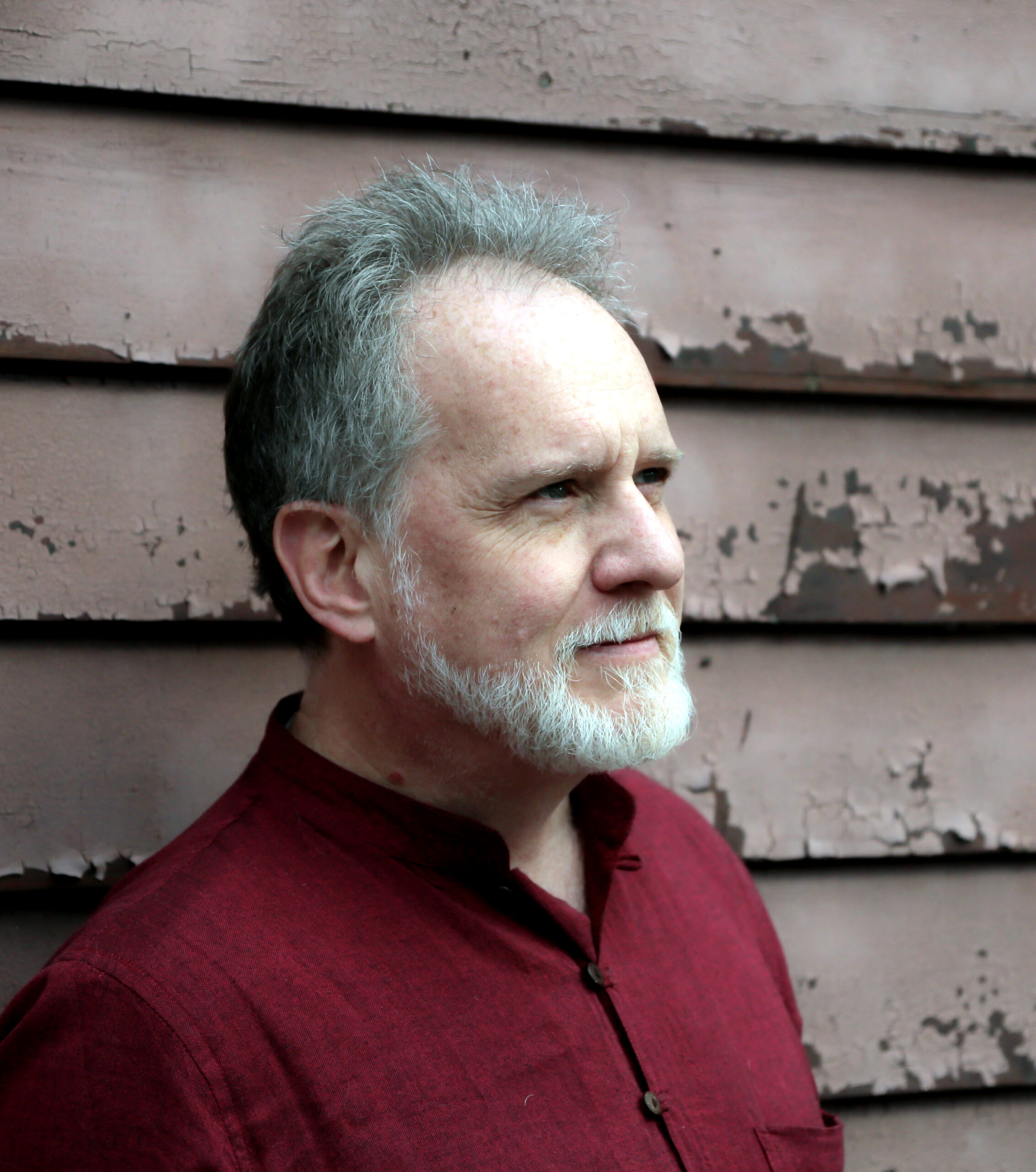Whoever you are, whoever you are,
in evening’s cusp step outside the room
of all you know, of all you are aware.
Of the near-to-what’s-far, yours is the last home.
With eyes that can barely pry themselves
from the wasted threshold, you lift one
black tree slowly into difficult
place against the sky: slender, alone.
And so, create the world. And it’s immense,
and like a word that ripens inside silence,
and like intention quickening into sense,
your eyes slowly tender its release…
O the parabolas of my longing across
all of space, and my whole being
flung out with every flare—the aching
swerves of many faithfully arcing back,
gone for a thousand years, gone again—
hurrying through a future already past,
coming to know themselves in seasons
or hazily, as if an influence, inerrant,
almost star-inflected, of the omniscient
apparatus, for a little while trembling….
I stand amazed in my unknowing
before my life’s wide heavens.
O throngs of stars. Their every rising
and descent. Such utter stillness.
As though I was not. Did I seize
my part? Spurn their influence?
In my blood do high and low tides
rise and fall within their eminence?
I’ll spurn each wish, every communion,
now that my heart knows its distance.
Better to live under their terror
than wrap myself in halos of delusion,
pacified by the haven of what is near.
O the endlessly fleeting stars—all the losses, Marina,
into the All! We cannot increase any of it, wherever
it is we might heave ourselves, to whatever distant star!
In the All-in-All, always everything’s already redeemed.
Nor does each fall lessen the sacred figure. Each fall
is a relinquishment into the Source, and a healing.
Is this all game, a gambit, a swap of same into same,
nowhere a name, and nowhere, hardly, any resident worth?
Swells, Marina, we are ocean. Abysses, Marina, we’re sky.
Earth, we are Earth, Marina, we are a thousandfold spring,
like larks borne onward to Invisibility in a burst of song.
We begin the song rejoicing—already it surpasses us wildly;
but suddenly our heaviness bends it downward to lament.
But why, “lament”? Why not “infant-joy-in-decrescendo”?
Even the lesser of the gods want to be glorified, Marina.
Gods are so guileless; they hang on praise like school kids.
Praise, my dear, we must be extravagant in giving praise.
Nothing belongs to us. We gently place our hand around
the necks of un-plucked flowers. I saw it on the Nile,
in Kom-Ombo. This way, a king’s gift makes self-denial
a sacrifice. Just as angels walk, marking doors of those
to be saved, so we touch this and that, as if it were we
who are the tender ones. Ah, well, how absent we are
already, absent-minded, even in the most ardent guise.
Token-givers, nothing more. This intricate business
where one of us can no longer bear the cost, and steels
himself for the seizing, to get his own back, and kills.
For as we surmised by its willingness to pass over,
and its leniency, the deadly has power, and the stranger
power, to change us from living to the ones living on.
Not-Being. Do you remember how often a blind charge
sustained us through the icy waiting room of new birth…
Sustained us? Sustained a body of eyes, shut, numbed,
under their numberless lids. Sustained in each of us
the prostrate heart of the whole species. Sustained all,
all of us, on the soaring of a migratory bird, the image
of our transfiguration. Lovers, Marina, should not know
anything of the depths of ruin. They must be made new.
Only their grave is old, only their grave reflects, darkening
under a sobbing tree, reflects on everything that ever was.
Only their grave disintegrates; they themselves are lithe
as reeds; what nearly breaks them richly loops them
into a wreath. How they blow everywhere in the May wind.
(From the midst of Always in which you breathe and guess,
each instant stays them. O how I grasped what you meant,
feminine blossom on the same imperishable bush. How
urgently I scatter myself into the night air that will just
barely touch you with the next and next.) The gods
early on learned to dissemble into halves. We, drawn
into the circuit of each other, flourished into a whole
like the roundness of the moon. Even in the waning,
even in the weeks of return, no one could ever help us
to reach this fullness once again—there now is only
our own solitary passage across the sleepless landscape.
Rainer Maria Rilke (1875-1926) is universally recognized as one of the greatest poets of the German language. Born in Prague, then in the Austro-Hungarian empire, his most famous books are Duino Elegies and Sonnets to Orpheus. These translations are versions in English of the poems “Eingang” (The Book of Images, 1902), two later uncollected, untitled poems from 1912 and 1913, and his elegy for the Russian poet Marina Tsvetaeva, composed several months before his own death.

Daniel Tobin is the author of ten books of poems, including From Nothing, winner of the Julia Ward Howe Award, The Stone in the Air, his suite of versions from the German of Paul Celan, and Blood Labors, named one of the Best Poetry Books of the Year for 2018 by the New York Times and The Washington Independent Review of Books. His poetry has won many awards, among them the Massachusetts Book Award and fellowships from the NEA and the Guggenheim Foundation. His trilogy of book-length poems, The Mansions, is newly out from Four Way Books.

“Our idea in calling this the ‘Translator’s Page’ is to show the ways and/or languages in which a translator works. Monthly posts may include translations from different languages and styles and centuries. The connective thread between them is the ability of the translator to interpret cultures and time periods for the contemporary reader.”
—Jonathan Wells, curator of The Translator’s Page